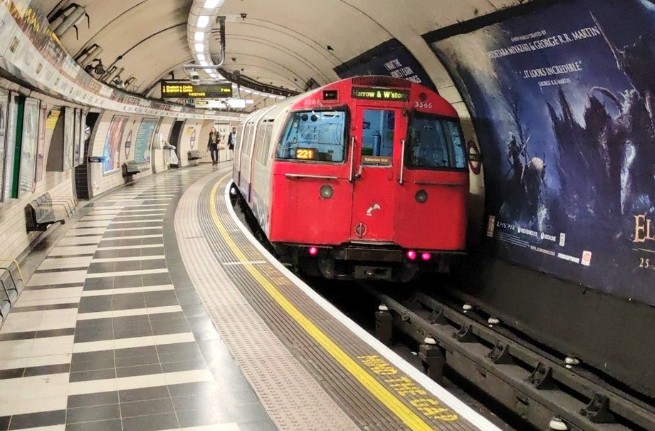London Tube Strike Set to Paralyse Capital with £230m Economic Blow
London is bracing for six days of travel chaos as RMT union members prepare for a Tube strike that could inflict a direct £230 million hit on the capital’s already fragile economy.
Transport for London (TfL) has warned commuters to expect “little to no service” across the Underground network from Monday through Thursday, with walkouts beginning on Sunday.
The strike, driven by disputes over pay and working hours, is expected to disrupt journeys for over three million passengers each day. The scale of disruption has already been highlighted in coverage of the strike’s severe impact on London.
The decision to strike stems from a ballot of RMT’s 10,424 London Underground members. Just over 6,000 backed industrial action – about 57 per cent of those eligible. Yet nearly 4,200 members did not cast a vote. Only 209 voted against, while 15 ballot papers were spoiled.
Critics argue that a strike of this scale, capable of paralysing London, rests on relatively slim engagement. But union chiefs insist their demands remain urgent.
RMT general secretary Eddie Dempsey said: “They are not after a King’s ransom, but fatigue and extreme shift rotations are serious issues impacting on our members health and wellbeing.”
The RMT is pushing for a 32-hour working week and higher wages. TfL, however, says such a reduction in hours is “neither practical nor affordable.” Instead, it has tabled a 3.4 per cent pay rise for all 16,500 Tube staff.
Talks took place this week between TfL negotiators and union leaders, but no progress was made. TfL insists discussions are “ongoing,” with officials urging the RMT to reconsider strike action and put the pay offer to its members.
A TfL spokesperson said: “We are committed to ensuring our colleagues are treated fairly and, as well as offering a 3.4 per cent pay increase in our ongoing pay discussions, we have made progress on many commitments we have made previously.
Given the improvements we have recently put in place in response to concerns raised by our unions, we urge the RMT to put our fair, affordable pay offer to their members and to continue to engage with us rather than threaten strike action, which will only disrupt Londoners.”
Independent research by the Centre for Economics and Business Research (CEBR) forecasts losses of around £230m due to reduced productivity, missed shifts, and falling customer numbers in London’s retail and hospitality sectors.
The think tank noted: “Experience from previous strikes shows that London businesses face reduced productivity as staff struggle to get into the office or arrive late, while shops, restaurants, and leisure venues typically suffer from weaker footfall and lower consumer spending.
On top of that, congestion on London’s roads is expected to increase sharply as people switch from the Underground to cars, taxis, and buses, further adding to delays and lost output.”
The disruption comes at a time when many businesses are still recovering from economic shocks of recent years. While some commuters may work from home, the blow will be felt hardest by city-centre businesses reliant on footfall.
The Elizabeth Line and London Overground are expected to remain operational, but roads will likely be gridlocked.
The strike also reignites a long-standing political row. Since Sadiq Khan became London’s mayor in 2016, more than 37,000 Tube shifts have been lost to industrial action. Critics say his promise of “zero days of strikes” has long been abandoned.
Keith Prince, Conservative transport spokesman at City Hall, previously claimed London has endured 139 Tube strikes since Khan took office.
For now, Londoners face another week of uncertainty, as unions and TfL remain locked in a stalemate.






